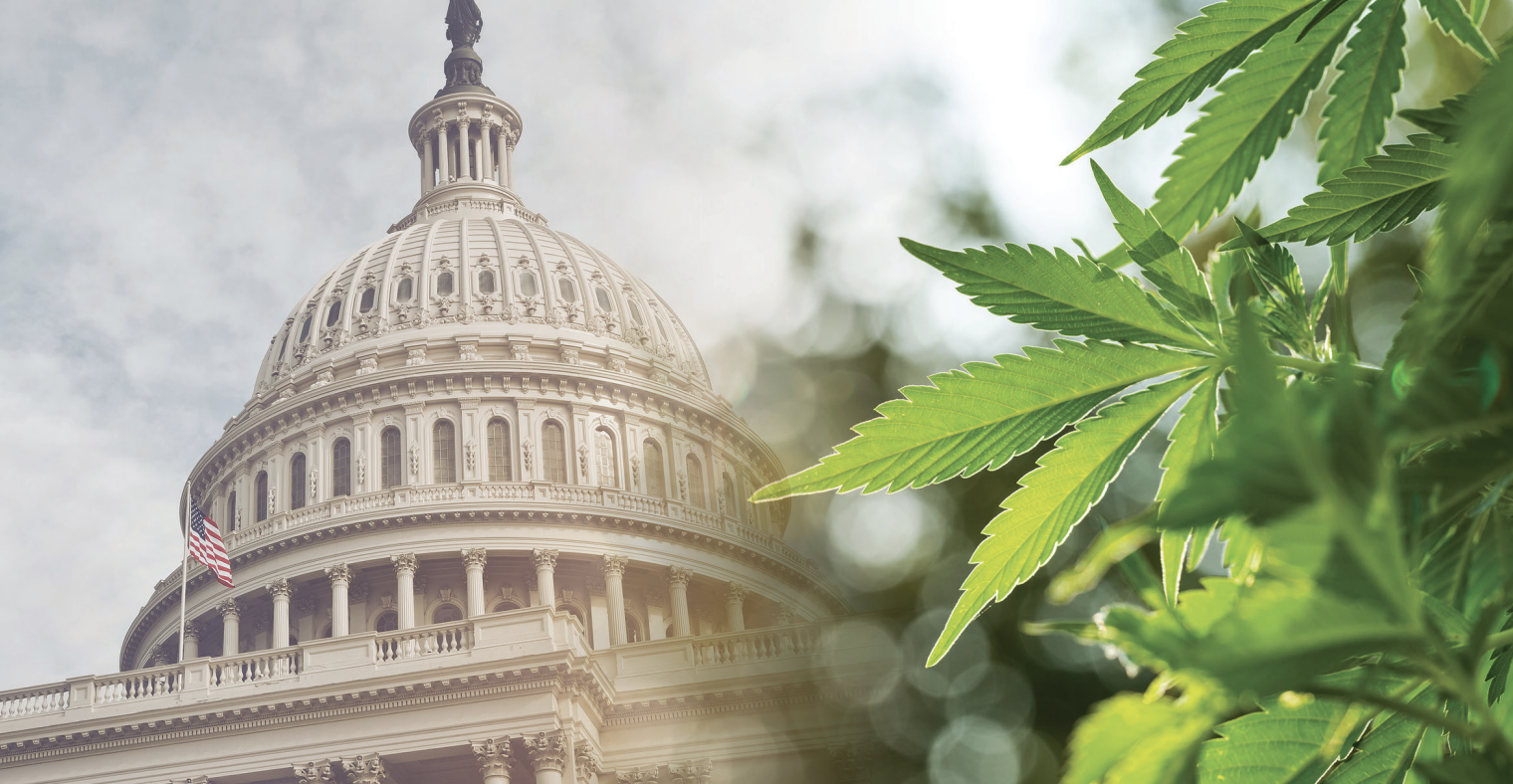Washington, DC lawmakers have filed a revised bill to create a regulated adult-use cannabis market, despite an ongoing congressional ban that blocks the District from enacting the reform.
The legislation, introduced by District Council Chairman Phil Mendelson (D) and six other councilmembers, is largely consistent with an earlier version that received a hearing in 2022 but was ultimately not enacted—though it includes a new reparations provision to provide direct payments to people who have been harmed by marijuana criminalization.
While DC voters legalized low-level marijuana possession, home cultivation and gifting through a ballot initiative in 2014, there’s currently no system of regulated sales. A congressional spending bill rider from Rep. Andy Harris (R-MD) that continues to be re-enacted by Congress under both Republican and Democratic control prevents the District from using its local tax dollars to implement a commercial cannabis market.
There were hopes that lawmakers would remove the prohibition from the latest appropriations package that passed in December 2022, but even with Democratic majorities in both chambers last session, the language was ultimately kept in the bill—with the support of the Biden administration.
As such, the local government in the nation’s capital can’t enact the new cannabis regulation bill without violating federal law, but a federal oversight agency determined in 2022 that the congressional rider does not preclude local officials from taking procedural steps to prepare for the eventual reform, such as holding hearings.
People impacted by criminalization would receive between $5,000 and $80,000.
“Notwithstanding congressional interference in DC affairs, we’re thankful that the DC Council has moved so swiftly and decisively on this comprehensive cannabis legislation, which prioritizes social equity and community investment,” the i-71 Committee, a nonprofit focused on equitable cannabis legislation, stated to Marijuana Moment.
“This policy is another step in the right direction for the DC cannabis industry. We look forward to continued conversations and collaboration with the Council, [Alcoholic Beverage and Cannabis Administration] and the mayor’s team.”
Most of the legislation mirrors what legislators filed and discussed last session, though there are some changes of note such as new language to use 40 percent of cannabis tax revenue to support a “Reparations for Victims of the War on Cannabis Fund” that will provide cash payouts to people impacted by prohibition before 2015.
“I’m looking at it as a strategy to reverse the inequitable impacts of the War on Drugs,” Mendelson told DCist’s Martin Austermuhle, who first reported the new bill.
“How can we use this opportunity for [revenue] to the government, if we can tax and regulate cannabis, to do more to help with regard to the income disparities that were exacerbated by the War on Drugs? I think it’s an interesting idea. Let’s see how it plays out in terms of reaction, suggestions for improvement or criticisms.”
Key Provisions
Adults 21 and older could possess, purchase and gift up to one ounce of cannabis. They could also grow up to six plants, only three of which could be mature.
The legislation calls for the establishment of an Alcoholic Beverage and Cannabis Board and the Alcoholic Beverage and Cannabis Administration to promulgate regulations and oversee the program.
Regulators could approve licenses for cultivators, manufacturers, microbusinesses, internet retailers, retailers and testing facilities.
Retailers and microbusinesses could apply for endorsements to provide cannabis delivery services and operate on-site consumption lounges.
Recreational marijuana products would be subject to a 13-percent tax, while medical cannabis would be taxed at six percent.
There are several social equity components, such as requiring regulators to create “grant, equity and loan programs for the purposes of providing financial assistance, loans, grants, equity and technical assistance to social equity applicants.”
A “Cannabis Equity and Opportunity Fund” would be established to support people who have been disproportionately impacted by criminalization with entering the industry and operating their business.
The Superior Court would “vacate, dismiss and expunge” any marijuana convictions for activity that’s been made legal.
At least half of all license types would need to be reserved for social equity businesses.
The “Reparations for Victims of the War on Cannabis Fund” would pay out people impacted by criminalization, in amounts that are at least $5,000 and at most $80,000.
The bill also mandates the creation of a “Community Re-Investment Program Fund,” supported by 20-percent of cannabis tax revenue, to “address economic development, education, mental health treatment, substance use disorder treatment, non-law enforcement violence prevention services, homeless prevention services, re-entry services, youth development and civil legal aid.”
Regulators could set licensing caps, but they’d have to demonstrate that the result would not conflict with a goal to “significantly shrink the scale of the illicit cannabis market, and available evidence on the impacts of cannabis businesses on crime and property values.”
The Superior Court would be required to “automatically vacate, dismiss and expunge” any convictions for marijuana-related activity that’s been made legal.
The District would conduct an analysis on barriers to financial services, like banking accounts for cannabis businesses and issue rules to resolve those issues.
Image via National Cannabis Industry Association/United States Library of Congress
This story was originally published by Marijuana Moment, which tracks the politics and policy of cannabis and drugs. Follow Marijuana Moment on Twitter and Facebook, and sign up for its newsletter.





Show Comments